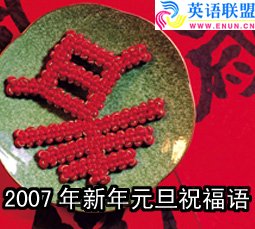(Mme. Chiang Kai-shek was GREeted with prolonged applause, Senators and guests of the Senate rising.)
The VICE PRESIDENT. Senators, distinguished guests, Mme. Chiang Kai-shek, wife of the Generalissimo of the armies of China, will now address you.
[Applause]
ADDRESS BY MME. CHIANG KAI-SHEK
Mr. President, Members of the Senate of the United States, ladies and gentlemen, I am overwhelmed by the warmth and spontaneity of the welcome of the American people, of whom you are the representatives. I did not know that I was to speak to you today at the Senate except to say, “How do you do? I am so very glad to see you,” and to bring the GREetings to my people
to the people of America. However, just before coming here, the Vice President told me that he would like to have me say a few words to you.
I am not a very good extemporaneous speaker; in fact, I am no speaker at all; but I am not so very much discouraged, because a few days ago I was at Hyde Park, and went to the President’s library. Something I saw there encouraged me, and made me feel that perhaps you will not expect overmuch of me in speaking to you extemporaneously. What do you think I saw there? I saw
many things. But the one thing which interested me most of all was that in a glass case there was the first draft of tone of the President’s speeches, a second draft, and on and on up to the sixth draft. Yesterday I happened to mention this fact to the President, and told him that I was extremely glad that he had to write so many drafts when he is such a well-known and
acknowledgedly fine speaker. His reply to me was that sometimes he writes 12 drafts of a speech. So, my remarks here today, being extemporaneous, I am sure you will make allowances for me.
The traditional friendship between your country and mine has a history of 160 years. I feel, and I believe that I am now the only one who feels this way, that there are a GREat many similarities between your people and mine, and that these similarities are the basis of our friendship.
I should like to tell you a little story which will illustrate this belief. When General Doolittle and his men went to bomb Tokyo, on their return some of your boys had to bail out in the interior of China. One of them later told me that he had to mail out of his ship. And that when he landed on Chinese soil and saw the populace running toward him, he just waved his arm and shouted the only Chinese word he knew, “Mei-kuo, Mei-kuo,” which means “America,” [Applause.] Literally translated from the Chinese it means “Beautiful country.” This boy said that our people laughed and almost hugged him, and GREeted him like a long lost brother. He further told me that the thought that he had come home when he saw our people; and that was the first time he had ever been to China. [Applause.]
I came to your country as a little girl. I know your people. I have lived with them. I spent the formative years of my life amongst your people. I speak your language, not only the language of your hearts, but also your tongue. So coming here today I feel that I am also coming home. [Applause.]
I believe, however, that it is not only I who am coming home; I feel that if the Chinese people could speak to you in your own tongue, or if you could understand our tongue, they would tell you that basically and fundamentally we are fighting for the same cause [GREat applause]; that we have identity of ideals’ that the “four freedoms,” which your President proclaimed to
the world, resound throughout our vast land as the gong of freedom, the gong of freedom of the United Nations, and the death knell of the agGREssors. [Applause.]
I assure you that our people are willing and eager to cooperate with you in the realization of these ideals, because we want to see to it that they do not echo as empty phrases, but become realities for ourselves, for your children, for our children’s children, and for all mankind. [Applause.]
How are we going to realize these ideals? I think I shall tell you a little story which just came to my mind. As you know, China is a very old nation. We have a history of 5,000 years. When we were obliged to evacuate Hankow and go into the hinterland to carry on and continue our resistance against
agGREssion, the Generalissimo and I passed one of our fronts, the Changsha front. One day we went in to the Heng-yang Mountains, where there are traces of a famous pavilion called “Rub-the-mirror” pavilion, which perhaps interest you to hear the story of that pavilion.
Two thousand years ago near that spot was an old Buddhist temple. One of the young monks went there , and all day long he sat cross-legged, with his hands clasped before him in and attitude of prayer, and murmured “Amita-Buddha! Amita-Buddha! Amita-Buddha!” He murmured and chanted day after day, because he hoped that he would acquire grace.
The Father Prior of that temple took a piece of brick and rubbed it against a stone hour after hour, day after day, and week after week. The little acolyte, being very young, sometimes cast his eyes around to see what the old Father Prior was doing. The old Father Prior just kept on this work of rubbing the brick against the stone. So one day the young acolyte said to him, “Father Prior, what are you doing day after day rubbing this brick of stone?” The Father Prior replied, “I am trying to make a mirror out of this brick.” The young acolyte said, “But it is impossible to make a mirror out of a brick, Father Prior.” “Yes,” said the Father Prior, “and it is just as impossible for you to acquire grace by doing nothing except
murmur ‘Amita-Buddha’ all day long, day in and day out.” [Applause.]
So my friends, I feel that it is necessary for us not only to have ideals and to proclaim that we have them, it is necessary that we act to implement them. [Applause.] And so to you, gentlemen of the Senate, and to you ladies and gentleman in the galleries, I say that without the active help of all of us, our leaders cannot implement these ideals. It’s up to you and to me to take to heart the lesson of “Rub-the-Mirror” pavilion.
I thank you. [GREat applause, Senators and their guests rising.]
Following her address, Mme. Chiang Kai-shek and the distinguished visitors accompanying her and the others guests of the Senate were escorted from the Chamber.


 【趣味英语】春节小知
【趣味英语】春节小知 世界节日(1)Spring
世界节日(1)Spring 
 【趣味英
【趣味英 世界节日
世界节日 2010年牛
2010年牛 2010年新
2010年新 圣诞节故事
圣诞节故事 儿童英语小
儿童英语小